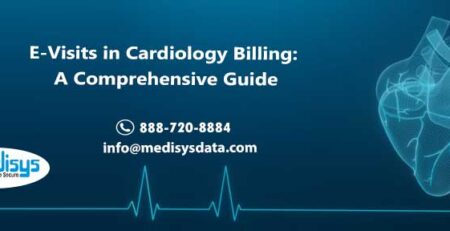Accurate and efficient cardiology medical billing and coding are essential for ensuring appropriate reimbursement and maintaining compliance with federal and payer-specific regulations. Given the complexity of cardiology procedures, a wide range of diagnosis codes, and frequent updates to coding guidelines, cardiology practices face unique billing challenges that differ significantly from those of primary care or general outpatient settings. In this article, we’ll explore the critical components of cardiology coding, including CPT codes, ICD-10 diagnosis codes, documentation, modifiers, and bundling issues. Whether you’re a cardiologist, practice manager, or billing coordinator, understanding these elements is crucial to optimizing reimbursement and reducing denials.
Common CPT Codes in Cardiology
Cardiology services often involve diagnostic procedures, non-invasive testing, and invasive treatments. Some of the most frequently used cardiology CPT codes include:
- 93000: Electrocardiogram, routine ECG with interpretation and report
- 93306: Echocardiography, transthoracic, complete, with spectral and color flow Doppler
- 93458: Left heart catheterization with coronary angiography
- 93224-93227: Holter monitor services (global, professional, and technical components)
- 92928: Percutaneous coronary intervention with stent placement
Choosing the correct code depends not only on the procedure performed but also on whether your cardiologist is providing the technical component (-TC), professional component (-26), or both.
ICD-10 Diagnosis Codes: Precision Matters
Every billed service must be justified by a medically necessary diagnosis. Some of the commonly used ICD-10 codes in cardiology include:
- I10 – Essential (primary) hypertension
- I25.10 – Atherosclerotic heart disease of native coronary artery without angina
- I48.91 – Unspecified atrial fibrillation
- I50.9 – Heart failure, unspecified
Medical necessity is demonstrated by the proper alignment of ICD-10 and CPT codes. Coding too generally (e.g., using I50.9 when a more specific heart failure code exists) can lead to claim denials or underpayment.
Key Modifiers in Cardiology Coding
Modifiers provide additional context about a service, which is especially critical in cardiology when multiple procedures are performed in the same session. Some essential cardiology coding modifiers include:
- 26: Professional component only
- TC: Technical component only
- 59: Distinct procedural service
- 25: Significant, separately identifiable E/M service on the same day as a procedure
- 51: Multiple procedures
Improper or missing modifiers are a frequent cause of claim denials or downcoding. For example, failing to append modifier -26 when only the interpretation of a test is done may result in no reimbursement.
Documentation: The Backbone of Clean Claims
Cardiology documentation must support both the complexity of care provided and the level of services coded. Payers closely scrutinize:
- Indications for procedures
- Imaging interpretations
- Pre- and post-operative notes
- Time-based services (e.g., stress tests or cardiac rehab)
- Risk and decision-making complexity in E/M notes
Incomplete or vague documentation can not only lead to denials but also open practices to audit risk.
Bundling & Unbundling: Know What’s Included
Cardiology procedures often involve multiple services during a single encounter. However, some CPT codes are bundled, meaning they are considered part of a comprehensive service and are not reimbursed separately. For example, cardiac catheterization codes often include imaging guidance. Billing separately for included components (unbundling) violates coding rules and may trigger audits. Use tools like CCI (Correct Coding Initiative) edits to check bundling relationships before claim submission.
Staying Updated with Cardiology Coding Changes
Cardiology billing and coding guidelines change annually, impacting reimbursement and compliance. Some of the recent trends include:
- Expansion of remote cardiac monitoring CPT codes
- Revisions to Evaluation & Management (E/M) guidelines in outpatient settings
- Changes to telehealth billing rules, especially post-COVID
- Introduction of new ICD-10 codes for heart failure variants
Practices that fail to update coding protocols yearly often experience rising denial rates and reduced collections.
Challenges in Cardiology Medical Billing
The following are some common billing pitfalls in cardiology:
- Duplicate billing: submitting both global and professional/technical components incorrectly
- Improper use of modifiers
- Incomplete encounter notes leading to downcoding
- Inadequate tracking of authorization requirements for high-cost procedures
- Non-compliance with payer-specific LCD/NCD coverage policies
To avoid these issues, many cardiology practices turn to specialized cardiology billing services to ensure accuracy and compliance.
Why Cardiology Practices Outsource Medical Billing
Given the specificity of cardiovascular coding and billing, many practices choose to outsource cardiology medical billing services to experts. The benefits include:
- Faster reimbursement and fewer denials
- ICD-10/CPT accuracy from specialty-trained coders
- Payer-specific knowledge, including Medicare Advantage and commercial plans
- Compliance support with HIPAA, CMS, and state-level regulations
- Integration with popular EHR and billing platforms
Conclusion
Cardiology medical billing and coding is a comprehensive process that requires a deep understanding of cardiovascular procedures, coding rules, payer requirements, and compliance standards. A proactive strategy that includes accurate documentation, proper use of CPT and ICD-10 codes, and staying current with coding changes is essential for maintaining profitability and avoiding audit exposure.
Whether you’re a solo practitioner or manage a multi-provider cardiology group, working with a specialized billing partner can help reduce errors, improve revenue, and give you more time to focus on patient care.
About Medisys
At Medisys, we specialize in providing end-to-end cardiology medical billing and coding services tailored to the unique needs of cardiology practices. Our team of certified medical coders and billing experts ensures accurate CPT and ICD-10 coding, efficient claims submission, and denial management. We work with cardiologists across the USA, integrating seamlessly with your existing EHR or billing software. With our specialty-driven approach, cardiology practices benefit from improved cash flow, reduced administrative burdens, and full compliance with evolving payer and CMS regulations.
Reference:
- American College of Cardiology: Coding and Reimbursement
- Society for Cardiovascular Angiography & Interventions: Guide to Billing, Coding, and Reimbursement for Interventional Cardiology
Disclaimer: CPT® codes are copyrighted by the American Medical Association (AMA), and ICD-10 codes are maintained by CMS and NCHS. The codes shared here are for informational purposes only and may be updated annually. Please verify all codes and descriptions using official sources before use.












